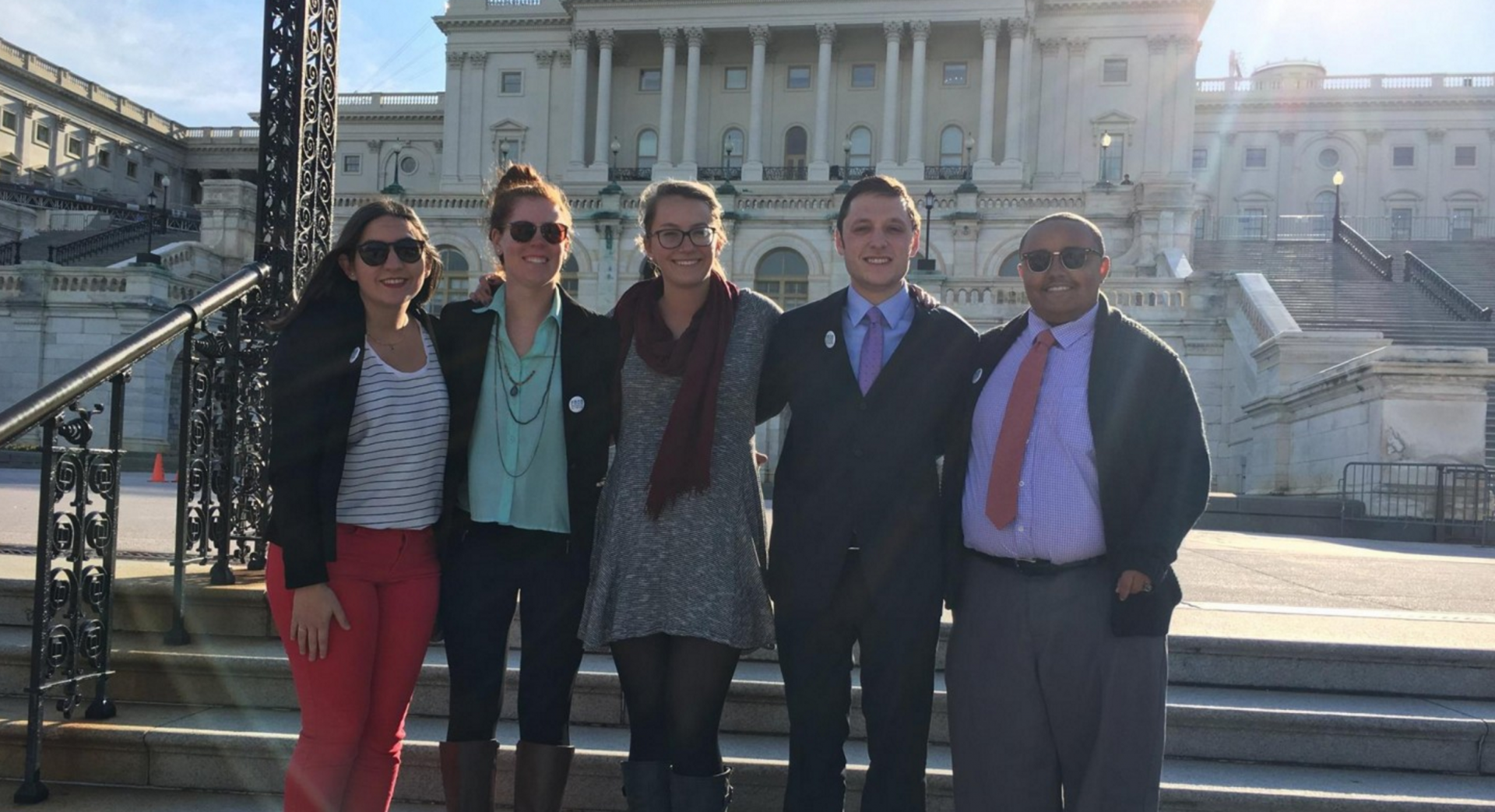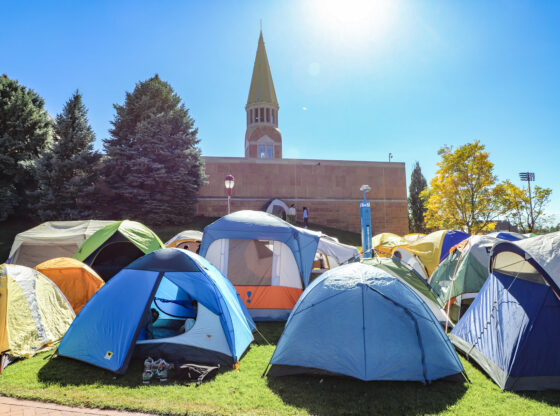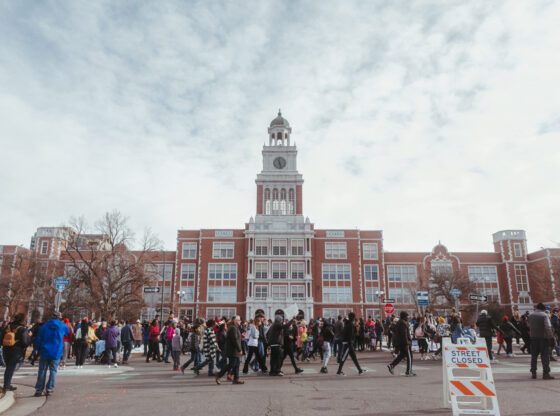At DU and most college campuses, it typically doesn’t matter if students finish their plates at the dining hall because food will likely always be wasted. With unlimited meal swipes and endless trips back to the pancake bar, leftovers are always plentiful. However, a group of Pioneer students realized the incredible waste that the campus was producing on a daily basis and decided it was time to do something about it. The nation-wide program known as Food Recovery Network was started at the University of Maryland in 2011. The act of a recovery, bringing the food from the dining halls to shelters. Roughly a year ago, current DU junior Paul Sherman endlessly pushed, and finally succeeded, in getting DU to open its own Food Recovery chapter.
The nation-wide program known as Food Recovery Network was started at the University of Maryland in 2011. The act of a recovery, bringing the food from the dining halls to shelters. Roughly a year ago, current DU junior Paul Sherman endlessly pushed, and finally succeeded, in getting DU to open its own Food Recovery chapter.
“Food recovery is important because one in seven Americans is food insecure while we throw out about 40 percent of all of our food,” said Renee Facchini, an active member in Food Recovery at DU. Even with zero effort or conscious decision, everyone contributes to food waste, though not all actively try to reverse the damage.
“The school was reluctant to let us open a chapter on campus because they argued that we were too small of a school and wouldn’t produce enough waste,” said Sherman, president of the DU chapter. “They thought it wouldn’t be worth our time, but I knew that was false.” Since the chapter opened only a year ago, they have recovered over 8,000 pounds of food that would have otherwise gone to waste. Food Recovery nationwide has recovered over one million pounds of food since their initial launch in 2011.
Food Recovery has recently been getting the attention it deserves not only at DU, but nationwide. Just this past weekend, several members of the DU chapter headed to Washington D.C. where they connected with chapters all over the country and even the founders. Furthermore, the various members of Food Recovery decided on lobbying the capitol with state congress members per state involved with Food Recovery.“We met with the senate reps from Colorado and they loved hearing what we had to say,” said junior Carly McGuire. “Personally, I cannot wait to see what this chapter does in the future because this conference completely re-inspired all of us and we are ecstatic to continue to spread the word about food waste and hunger.”
Waste is often inevitable, especially on college campuses. When feeding a large body of students, dining areas need to cook more food than is necessary because running out of food is not an option. However, while dining halls rarely run out of food, they continuously produce enough food waste each day to feed several thousand people in the Denver area.
As Food Recovery on the DU campus has been picking up speed, other clubs, such as the Sustainability Committee, have joined forces. The members of Food Recovery have plans to use bicycles with trailers in order to deliver the food in a more eco-friendly manner. “Such simple actions can go a long way,” said Sherman.
Though students can’t control the excess food that their campus produces, they’ve found a simple solution to a complex issue that is just getting started.
Just a year ago, the chapter at DU hadn’t even been officially established. Sherman and fellow peers endlessly strived to bring a Food Recovery chapter to DU and now, a year later, they’re traveling across the country, lobbying in D.C. and feeding those in need.











